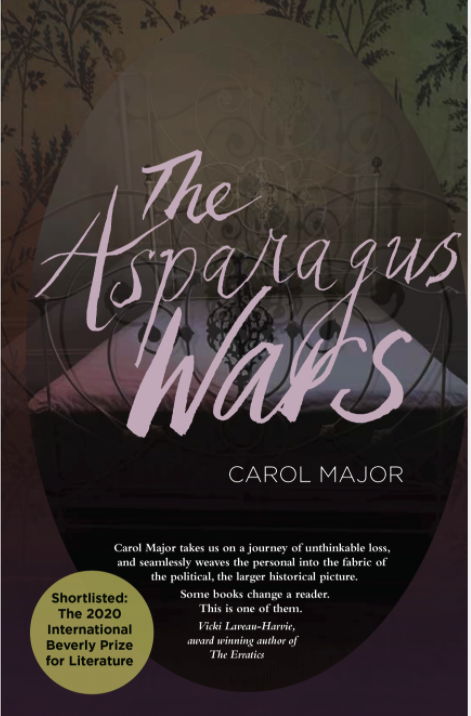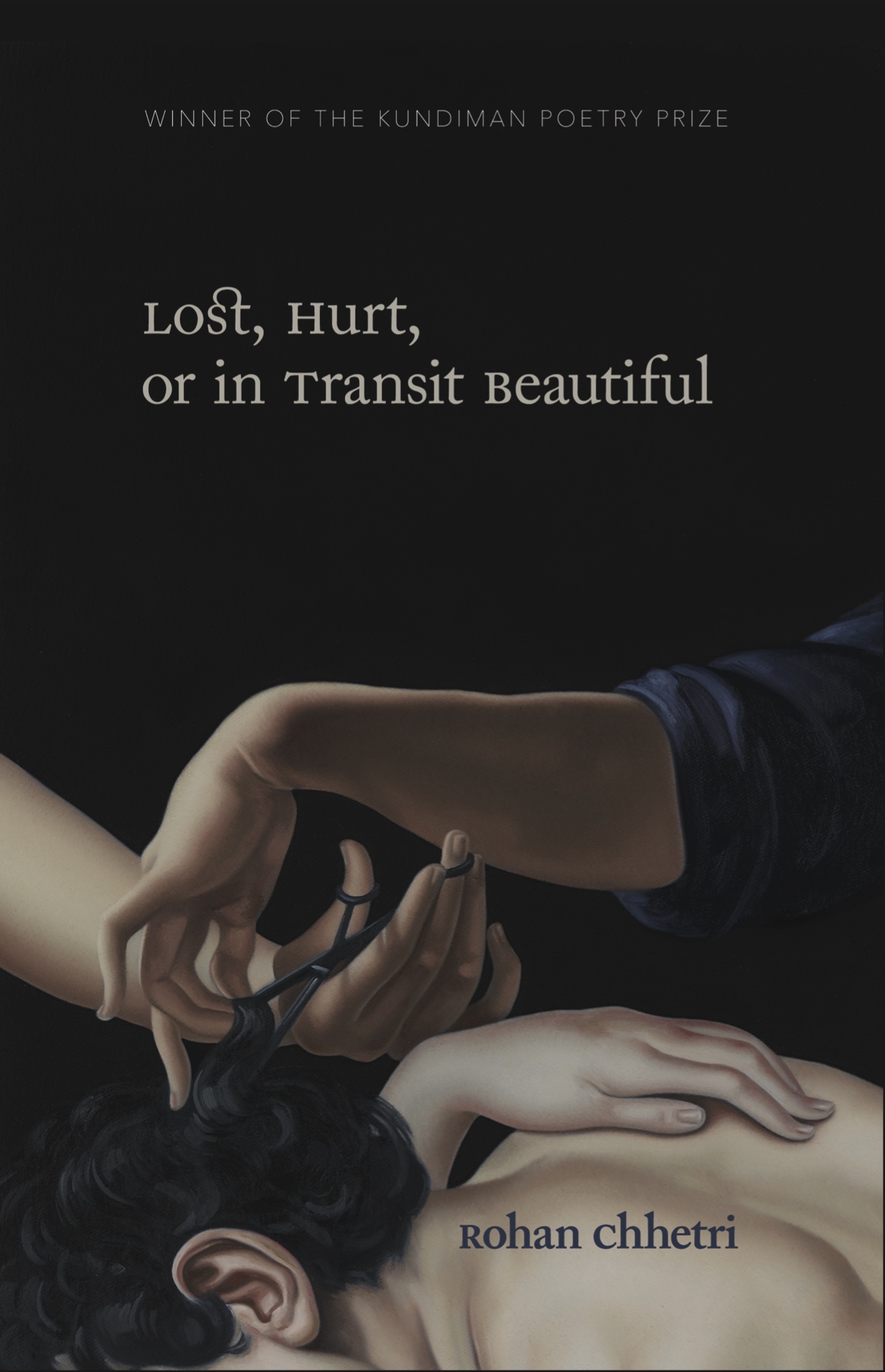 The author of WWII POWs in America and Abroad talks about why he wrote his book, the often-overlooked perspectives of the 6 million people held in prison camps in the U.S. and around the world between 1939 and 1945, about what life was like for an imprisoned officer, about growing up in Owosso during WWII, classic movies, collaborating with his wife, and lots more.
The author of WWII POWs in America and Abroad talks about why he wrote his book, the often-overlooked perspectives of the 6 million people held in prison camps in the U.S. and around the world between 1939 and 1945, about what life was like for an imprisoned officer, about growing up in Owosso during WWII, classic movies, collaborating with his wife, and lots more.
Sumptuous Scrupulousness: A review of Hesitancies by Sanjeev Sethi
 In “seclusiveness” he treats his bones of mundane aches and fills them “with the calm of calcium.” It is this myriad understanding of human hesitancies with all its aftermaths that are grappled by Sethi in a highly intellectual manner in this magnificent collection of poems that makes this book a treasure for the connoisseurs of poetry. A reader of this volume, if he or she makes the effort to go into the interstices of Sethi’s poetry, will experience time-capsules of life and do so in a more profound way that he or she has ever imagined.
In “seclusiveness” he treats his bones of mundane aches and fills them “with the calm of calcium.” It is this myriad understanding of human hesitancies with all its aftermaths that are grappled by Sethi in a highly intellectual manner in this magnificent collection of poems that makes this book a treasure for the connoisseurs of poetry. A reader of this volume, if he or she makes the effort to go into the interstices of Sethi’s poetry, will experience time-capsules of life and do so in a more profound way that he or she has ever imagined.
A review of The Asparagus Wars by Carol Major
 Compelled by a strong identification with Major’s experience of marriage and motherhood and a familiarity with the power structures that discriminated against her – remembering the marginalisation I’d faced as a single woman raising a child on my own – I came to the gradual understanding that my interaction with her work was almost wholly personal. My instinctive response to The Asparagus Wars, Major’s powerful recounts of gendered inequality, made it undesirable that I interact with the book in any other way.
Compelled by a strong identification with Major’s experience of marriage and motherhood and a familiarity with the power structures that discriminated against her – remembering the marginalisation I’d faced as a single woman raising a child on my own – I came to the gradual understanding that my interaction with her work was almost wholly personal. My instinctive response to The Asparagus Wars, Major’s powerful recounts of gendered inequality, made it undesirable that I interact with the book in any other way.
A review of Knives on a Table by Peter Mladinic
 This collection is a plethora of mixed emotions….Those of love, loss, living, and dying. Mladinic is a brilliant composer of the written word, of describing a feeling, an incident, a thought, and with the finesse of a fine master who cares deeply for his subjects. Add a bit of sensuality and desire, the frailty of the human mind and of human behavior, and the cruelty of death, and one has a window into the world of Mladinic’s psyche and his free verse poetry.
This collection is a plethora of mixed emotions….Those of love, loss, living, and dying. Mladinic is a brilliant composer of the written word, of describing a feeling, an incident, a thought, and with the finesse of a fine master who cares deeply for his subjects. Add a bit of sensuality and desire, the frailty of the human mind and of human behavior, and the cruelty of death, and one has a window into the world of Mladinic’s psyche and his free verse poetry.
Unlocking the Door of Consciousness: A Conversation with Clifford Garstang about his newest novel, Oliver’s Travels
 The author of Oliver’s Travels talks about his new book and his unique narrative style(s) and voices, his characters and their complex journeys, the books themes, his new work-in-progress, the joy of travel, and lots more.
The author of Oliver’s Travels talks about his new book and his unique narrative style(s) and voices, his characters and their complex journeys, the books themes, his new work-in-progress, the joy of travel, and lots more.
A review of April on Paris Street by Anna Dowdall
 April on Paris Street has several areas of interest: the charms of Paris and Montreal; the varied work of a private investigator; the dark, dangerous world in which we live, and above all, the importance of staying connected to our families, whether they be blood relatives or “intentional families” of friends.
April on Paris Street has several areas of interest: the charms of Paris and Montreal; the varied work of a private investigator; the dark, dangerous world in which we live, and above all, the importance of staying connected to our families, whether they be blood relatives or “intentional families” of friends.
A review of Lost, Hurt or in Transit Beautiful by Rohan Chhetri
 No matter where you live, Lost, Hurt or In Transit Beautiful will stir your senses and grip your imagination. It will invoke in your mind’s eye, unseen images of the land simmering at the foothills of the eastern Himalayas. It will strike a chord of compassion for what human beings endure and for what they pass on to posterity. Chhetri’s poems are an act of courage, a baring of the soul, written from the depth of his experiences, some as enigmatic as the title of the book itself.
No matter where you live, Lost, Hurt or In Transit Beautiful will stir your senses and grip your imagination. It will invoke in your mind’s eye, unseen images of the land simmering at the foothills of the eastern Himalayas. It will strike a chord of compassion for what human beings endure and for what they pass on to posterity. Chhetri’s poems are an act of courage, a baring of the soul, written from the depth of his experiences, some as enigmatic as the title of the book itself.
A review of Glass Bikini by Kristin Bock
 In Bock’s alternate universe, the reader is immersed in a carnival ride that questions and interprets how our current reality could easily follow a much darker timeline. In this world of monsters and chaos, happening “after the extinction of whales”, in which trees as nourishers become murderous “flame trees”, the reader is instantly and viscerally reminded of the fires that have ravaged Australia, the Amazon, and much of the western United States.
In Bock’s alternate universe, the reader is immersed in a carnival ride that questions and interprets how our current reality could easily follow a much darker timeline. In this world of monsters and chaos, happening “after the extinction of whales”, in which trees as nourishers become murderous “flame trees”, the reader is instantly and viscerally reminded of the fires that have ravaged Australia, the Amazon, and much of the western United States.
An interview with Elaelah Harley
 The author of A Plan to Save the World talks about how she started writing, her debut novel and its inspiration, her (self-) publishing journey, and lots more.
The author of A Plan to Save the World talks about how she started writing, her debut novel and its inspiration, her (self-) publishing journey, and lots more.
A review of The Museum of Heartache by Paul Luikart
 Luikart’s short stories are like glimpses of reality television episodes of the down-and-out and downtrodden. Each excerpt gives the reader a video clip in the mind, briefly immersing in the stories of bad parents, drug addicts, prostitutes, the suicidal, the desperately lonely, the neglected, the abandoned, the mentally ill, the grieving, and many more lost and despondent types. His writing puts one right into the desperate situations and into the brains of his characters.
Luikart’s short stories are like glimpses of reality television episodes of the down-and-out and downtrodden. Each excerpt gives the reader a video clip in the mind, briefly immersing in the stories of bad parents, drug addicts, prostitutes, the suicidal, the desperately lonely, the neglected, the abandoned, the mentally ill, the grieving, and many more lost and despondent types. His writing puts one right into the desperate situations and into the brains of his characters.